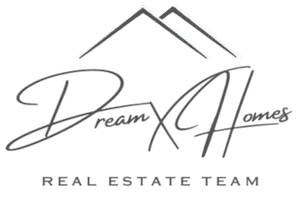Tired of Feeling Lost in the Home Loan Maze?
Get 5 Insider Secrets from NAR(National Association of Realtors) that Make Navigating Your Loan Simple and Stress-Free!
I consent to receive calls and texts from DreamX Homes & Glasshouse Realty Group for real estate information and assistance. You can unsubscribe anytime.
Ultimate Checklist for Affordable Housing in Dayton Area
Ultimate Checklist for Affordable Housing in Dayton Area

The lack of affordable homes in Dayton area is a rising concern impacting many aspiring homeowners. This shortage affects not only potential buyers but also the local economy and community development.
- Key points at a glance:
- Housing Inventory: Declined over 20% from last year.
- Affordable Locations: Limited options for middle-income workers.
- Economic Challenges: Potential deterrent for businesses due to housing constraints.
Dayton has traditionally been an affordable region for homebuyers. However, the current housing shortage is creating problems for those looking to invest in their first property. As reported by Dayton Realtors' President Greg Blatt, reduced inventory stresses both buyers, who face competitive bidding wars, and sellers, who must steer numerous offers with varying reliability.

Understanding the Lack of Affordable Homes in Dayton Area
The housing shortage in Dayton is becoming a significant issue. Over the past year, the number of homes for sale has dropped by more than 20%. This decline in inventory is one of the steepest among major urban areas in the United States. 
Low Inventory
In May 2023, there were only 668 homes available for sale in the Dayton metro area, compared to about 2,240 homes in May 2019. This drastic reduction means fewer choices for buyers, especially those seeking affordable options. The limited supply is not just a number—it's a barrier to homeownership that affects people's lives.
Economic Impact
The shortage of affordable homes in Dayton is not just a real estate problem—it's an economic one. Housing plays a crucial role in attracting new businesses and supporting the workforce. John Morris, from the Home Builders Association Dayton, warns that the lack of housing could hinder economic development. With companies like Honda/LG and Intel bringing jobs to the region, workers need places to live.
The economic impact is clear: every home sale in Ohio contributes about $76,000 to the local economy. Without enough homes to buy, this potential economic boost is lost. Moreover, the median listing prices have risen to $234,950, making it even harder for middle-income families to afford homes.
The Bigger Picture
This shortage is not just about numbers. It's about people and their ability to build lives and communities. The lack of affordable homes in Dayton area limits where people can live, work, and raise families. It also affects businesses, which struggle to attract and retain talent due to housing constraints.
To address these issues, local communities need to rethink zoning policies, offer incentives to builders, and streamline construction processes. Only then can Dayton hope to meet the housing demands of its growing population and ensure a thriving economy.
Key Challenges in the Dayton Housing Market
The lack of affordable homes in Dayton area is influenced by several key challenges. These challenges are interconnected and require a comprehensive approach to resolve. Let's explore the main issues:
Zoning Policies
Zoning policies in Dayton are a significant hurdle. Many local communities have strict zoning laws that limit where and what types of housing can be built. For instance, some areas require new homes to be constructed on large lots, which increases costs unnecessarily. John Morris from the Home Builders Association Dayton highlights that reducing lot size requirements from 80-foot-wide to 50-foot-wide lots could lower costs substantially.
Streamlining zoning processes and making them more flexible can help bring more affordable housing options to the market.
High Costs
The cost of building new homes has risen, driven by material and labor expenses. Homebuilders face these high costs, which they often pass on to buyers, making homes less affordable. Greg Blatt from Dayton Realtors notes that this situation creates a stressful environment for both buyers and sellers.
Reducing construction costs through incentives and tax credits could help make new homes more attainable for middle-income families.
Inadequate Wages
In Dayton, wages have not kept up with the rising housing costs. This gap makes it difficult for many residents to afford homes, even though the area is considered one of the most affordable urban regions in the country. The National Low Income Housing Coalition reports that 68% of extremely low-income renter households in Dayton are severely cost-burdened.
Addressing wage disparities and ensuring that incomes align with living costs is crucial to solving the housing affordability issue.
These challenges are not isolated—they affect each other and the broader economic landscape of Dayton. By addressing zoning policies, construction costs, and wage discrepancies, Dayton can work toward a more balanced and accessible housing market.
Strategies to Address the Housing Shortage
Addressing the lack of affordable homes in Dayton area requires a multi-faceted approach. Let's explore some effective strategies:
Incentives for Builders
Zoning Reform
Current zoning policies can be restrictive and drive up costs. Reforming these policies is crucial. By allowing for higher density housing and reducing lot size requirements, communities can make it easier and cheaper to build new homes. Common sense zoning and permitting processes can streamline developments, ensuring that homes are built faster and more affordably.
Community Collaboration
Solving the housing shortage requires collaboration between public and private sectors. Local governments, businesses, and community organizations must work together to identify land for new housing projects and support infrastructure development. Public-private partnerships can also facilitate innovative housing solutions that meet the needs of middle-income families.
By implementing these strategies, Dayton can make strides toward alleviating its housing shortage, ensuring that its workforce has access to affordable and suitable homes.
Impact of Housing Shortage on the Dayton Economy
The lack of affordable homes in Dayton area is more than just a housing issue—it's an economic challenge that affects everyone. Let's explore how this shortage impacts economic development, workforce challenges, and businesses in the region.
Economic Development
A thriving economy needs a stable housing market. However, Dayton's housing shortage threatens this balance. With a significant decline in available homes—more than 20% from May 2022 to May 2023—new businesses might hesitate to set up shop here. Companies like Honda/LG and Intel, which are bringing jobs to the area, rely on a steady supply of housing for their employees. Without it, attracting and retaining talent becomes difficult, stalling potential economic growth.
Workforce Challenges
The workforce is the backbone of any region's economy. In Dayton, the housing shortage creates significant barriers for workers. Affordable housing is crucial for middle-income workers who want to live close to their jobs and invest in the community. However, as homebuilders struggle to keep up with demand, these workers face long commutes or are forced to live in less desirable areas, impacting their quality of life and job satisfaction.
The Dayton Area Chamber of Commerce highlights that access to affordable housing is essential for economic stability. When workers can't find suitable homes, it disrupts their ability to contribute effectively to the local economy.
Business Impact
Businesses in Dayton are feeling the pinch of the housing crisis. The National Association of Realtors estimates that each home sale in Ohio has an economic impact of about $76,000. With fewer homes on the market, these sales—and their economic benefits—are declining.
Moreover, businesses face difficulties when their employees struggle to find housing. This can lead to higher turnover rates and increased recruitment costs. As John Morris from the Home Builders Association Dayton points out, if there are no places for workers to live, the region will struggle to attract new businesses and sustain economic development.
The housing shortage also fosters a competitive market, leading to bidding wars that can cause financing issues and delay sales. This uncertainty can deter potential investors and developers from entering the market, further exacerbating the problem.
By addressing these challenges, Dayton can pave the way for robust economic development and ensure that its workforce and businesses thrive.
Frequently Asked Questions about Affordable Housing in Dayton Area
What is the affordable housing shortage in Ohio?
Ohio faces a significant affordable housing shortage, with a gap of about 267,380 units needed for extremely low-income renters. In the Dayton metro area alone, there's a shortfall of 18,320 affordable units. This shortage means many families struggle to find homes within their budget, leading to increased financial stress and potential eviction risks.
What is the root cause of lack of affordable housing?
Several factors contribute to the lack of affordable housing. One major issue is zoning restrictions. These policies often limit the type and density of housing that can be built, making it difficult to construct affordable units. Additionally, high living costs and income inequality exacerbate the problem. Many families earn less than what's needed to afford even modest housing, creating a significant gap between housing costs and what residents can pay.
How does the housing shortage affect residents?
The housing shortage has profound effects on residents. Eviction risk is a primary concern, as many households spend more than half of their income on rent. This leaves little room for other expenses and increases the likelihood of eviction. Such financial stress can lead to long-term instability, impacting families' ability to maintain steady employment and access essential services.

Addressing these issues requires coordinated efforts from policymakers, community organizations, and developers to create more inclusive and sustainable housing solutions.
Conclusion
The lack of affordable homes in the Dayton area is a pressing issue that affects not just individuals, but the entire community. This housing shortage impacts economic growth, workforce stability, and overall quality of life. At DreamX.Homes, we believe in finding solutions that foster community growth and provide accessible housing options for everyone.
DreamX.Homes is committed to helping individuals and families find affordable housing in Dayton. We understand the complexities of the real estate market and are dedicated to providing personalized guidance to steer these challenges. Our expertise in the Dayton housing market allows us to offer custom solutions that meet the unique needs of each client.
To address the housing shortage, it's crucial for all stakeholders to work together. This includes reforming zoning policies, providing incentives for builders, and encouraging community collaboration. By doing so, we can create a more inclusive housing market that supports economic development and improves the quality of life for Dayton residents.
We invite you to explore our services and find how we can assist you in finding your ideal home in the Dayton area. Visit our DreamX.Homes Dayton page to learn more about how we can help you achieve your housing goals.
Together, we can build a stronger, more vibrant community where everyone has the opportunity to thrive.
Categories
- All Blogs 92
- Boosting Home Value 3
- Buyer Resources 13
- Eco-Friendly Upgrades 1
- First-Time Buyer Tips 2
- Home Buying & Selling 3
- Home Improvement & Staging 5
- Investment & Financing 14
- Local Attractions & Schools 5
- Local Market Trends 8
- Local Policy Changes 2
- Market & Industry News 2
- Market Insights 6
- Mistakes to Avoid 1
- Mortgage & Financing 22
- Neighborhood Spotlights 12
- Neighborhoods & Lifestyle 18
- New Construction 10
- Real Estate News & Updates 4
- Real Estate Technology 2
- Seller Resources 4
- Staging Tips 2
- Sustainability 3
Recent Posts










Tired of Feeling Lost in the Home Loan Maze?
Get 5 Insider Secrets from NAR(National Association of Realtors) that Make Navigating Your Loan Simple and Stress-Free!
I consent to receive calls and texts from DreamX Homes & Glasshouse Realty Group for real estate information and assistance. You can unsubscribe anytime.

"My job is to find and attract mastery-based agents to the office, protect the culture, and make sure everyone is happy! "

